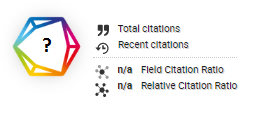EVALUATING COVID-19’ TAX INCENTIVES: MEASURING THE POLICY EFFECTIVENESS AND PROSPECTIVE POLICY ANALYSIS ON THE EXTENDED PROVISION
DOI:
https://doi.org/10.46984/sebatik.v26i1.1813Keywords:
policy effectiveness, policy evaluation, COVID's tax incentives, policy aims, national economic recoveryAbstract
Policy-making strength is an integral part of the government vigor. When policies fail, monetary and fiscal costs would significantly increase. Covid-19's Tax Incentive is one of the costs that must be incurred due to the Covid-19 pandemic. However, the absorption of this tax incentive has not been optimal, as indicated by the large gap between the budget and the realization of the tax incentives absorption. This research's aims are to evaluate the policy effectiveness of the Covid-19's tax incentives and analyzing the prospective policy of extended provision based on the evidences. This qualitative research was conducted with literature study as data collection technique. The qualitative data was processed using NVivo software. As the result, the policy aims of Covid-19's Tax Incentives are to maintain the economic growth stability, maintain people's purchasing power, maintain the productivity of certain sectors, support the handling of the Covid-19's impact, and maintain stock market stability. Covid-19's Tax Incentives provides quite effective results in dealing with the negative impacts of the pandemic. Most of the tax incentive policy targets appear to have been achieved, step by step. However, some policies have not been optimally absorbed. The provision of tax incentives can have a positive impact on the economy. However, on the other hand, evidence of increasing national debt can be an indicator that these incentives can also harm financial conditions. The government must be more effective. According to the data, not all types of tax incentives have a level of leverage for national economic recovery.
References
Avisena, M. I. (2020). OJK: Kinerja Industri Asuransi Menurun Saat Pandemi. Media Indonesia: https://mediaindonesia.com/ekonomi/356182/ojk-kinerja-industri-asuransi-menurun-saat-pandemi
Bali; Azad Singh. (2019). Anticipating and Designing for Policy Effectiveness. Semantic Scholar, 1–13.
Birkland, T. A. (2015). An Introduction to the Policy Process (3rd ed.). Routledge.
Brodzka, A. (2013). Tax incentives in emerging economies. Business Systems and Economics, 3(1), 25–36. https://repository.mruni.eu/handle/007/10539
Dharma, A. A. S. (2020). Epistemologi Baru Evidence-Based Policy Dalam Kebijakan Penanganan COVID- (Issue August, pp. 0–16). https://doi.org/10.13140/RG.2.2.17332.27524
DJP. (n.d.). Direktorat Jenderal Pajak Tanggap Covid-19. Retrieved August 7, 2021, from https://pajak.go.id/index.php/id/covid19
Dye, T. R. (2013). Understanding Public Policy (14th ed.). Pearson Education.
Fuadi, A. B., Aditya, Z. F., & Yulistyaputri, R. (2020). PENTINGNYA EVIDENCE BASED POLICY MAKING DALAM PEMBUATAN KEBIJAKAN PUBLIK DI ERA PANDEMI. Hukum Dan Birokrasi Untuk Indonesia Tangguh, 69–81.
International Monetary Fund. (2019). Tax Expenditure Reporting and Its Use in Fiscal Management.
Katadata. (2020). PMI Manufaktur Indonesia Terus Meningkat Sejak Maret 2020. Data Stories. https://databoks.katadata.co.id/datapublish/2020/09/02/pmi-manufaktur-indonesia-terus-meningkat-sejak-maret-2020#
Kementerian Keuangan Republik Indoenesia. (2021). APBN Kita Kinerja dan Fakta.
Kementerian Keuangan Republik Indonesia. (2020a). Ini Daftar Relaksasi Pajak untuk Mitigasi Dampak Negatif Virus Corona pada Ekonomi. https://www.kemenkeu.go.id/publikasi/berita/ini-daftar-relaksasi-pajak-untuk-mitigasi-dampak-negatif-virus-corona-pada-ekonomi/
Kementerian Keuangan Republik Indonesia. (2020b). Program Pemulihan Ekonomi Nasional. Kementerian Keuangan Republik Indonesia.
Kurniati, D. (2021). Puluhan Ribu Wajib Pajak Telah Pakai Insentif, Ini Kata Sri Mulyani. DDTC News. https://news.ddtc.co.id/puluhan-ribu-wajib-pajak-telah-pakai-insentif-ini-kata-sri-mulyani-30715?page_y=0
Pusat Kajian Anggaran, B. K. D. (2021). Insentif Pajak dalam Program PEN: Implementasi dan Tantangan Perpanjangannya Tahun 2021. Budget Issue Brief Ekonomi Dan Keuangan, 01(1).
Rudiyanto, A. (2020). Pengaruh Covid-19 terhadap Tujuan Pembangunan Berkelanjutan. In Kementerian PPN/ Bappenas. https://kkp.go.id/an-component/media/upload-gambar-pendukung/DitJaskel/publikasi-materi-2/SDGs-Talks-Menjaga-Momentum/20200506 Final Paparan Deputi KSDA SDG IPB - sec.pdf
Shaxson, L. (2016). Pelajaran untuk Membangun dan Mengelola Basis Bukti untuk Kebijakan (Working Paper 10 Knowledge Sector Initiative).
Susilawati, N., Indriani, Riana, V. and Abyan, D. (2021) “Tingkat Literasi Pajak Penghasilan Orang Pribadi dan Determinannya (Studi Di Jakarta, Bogor, Depok, Tangerang, Dan Bekasi)”, Sebatik, 25(1).
Tambunan, M. R. U. D. (2020). KEBIJAKAN PERPAJAKAN DI INDONESIA UNTUK KEMUDAHAN EKONOMI SAAT MASA PANDEMI Covid-19. Jurnal Administrasi Dan Kebijakan Publik, V(November), 20. https://doi.org/10.25077/jakp
Trung, T. Q., & Tan, N. V. (2020). Tax incentive policy and firm performance: Evidence from Vietnam. Investment Management and Financial Innovations, 17(2), 277–296. https://doi.org/10.21511/imfi.17(2).2020.22
Zulkarnaen, W., Erfiansyah, E., Amin, N. N., & Leonandri, D. G. (2020). Comparative Study of Tax Policy Related to Covid-19 in ASEAN Countries. Test Engineering and Management Journal, 10(June), 6519–6528. https://www.researchgate.net/publication/341495765
Downloads
Published
How to Cite
Issue
Section
License
Authors retain all their rights to the published works, such as (but not limited to) the following rights; Copyright and other proprietary rights relating to the article, such as patent rights, The right to use the substance of the article in own future works, including lectures and books, The right to reproduce the article for own purposes, The right to self-archive the article








